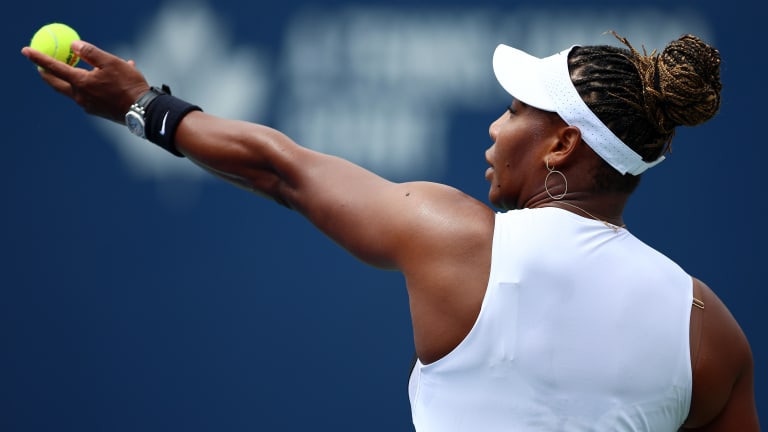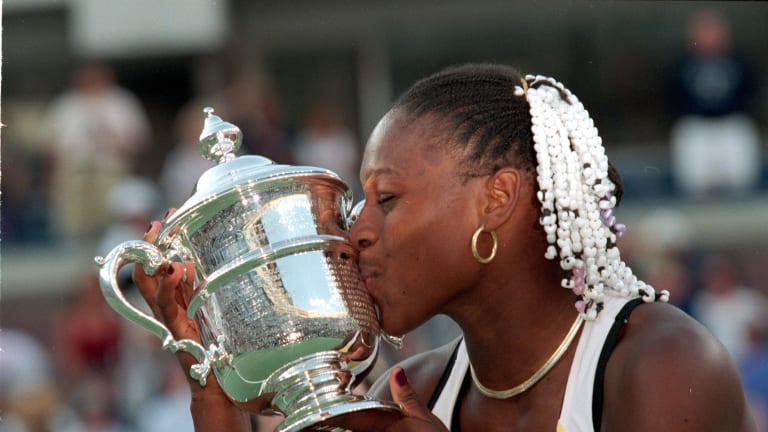Tennis Honors: Serena Williams
Serena Williams made tennis evolve for a quarter century. Now, she’s finally ready to evolve away from it herself
By Aug 09, 2022Tennis Honors: Serena Williams
Gallery of Greatness: What Brady, Gretzky, Jordan, Joyner-Kersee, Vergeer and Serena have in common
By Nov 25, 2022Tennis Honors: Serena Williams
How soon could Serena Williams make a comeback?
By Oct 25, 2022Tennis Honors: Serena Williams
The Matches that Made Serena the GOAT: Williams d. Venus Williams, 2017 Australian Open final
By Oct 18, 2022Tennis Honors: Serena Williams
The Matches that Made Serena the GOAT: Williams d. Maria Sharapova, 2012 Olympic gold medal match
By Oct 18, 2022Tennis Honors: Serena Williams
The Matches that Made Serena the GOAT: Williams d. Justine Henin, 2010 Australian Open final
By Oct 15, 2022Tennis Honors: Serena Williams
The Matches that Made Serena the GOAT: Williams d. Martina Hingis, 1999 US Open final
By Oct 13, 2022Tennis Honors: Serena Williams
The Matches that Made Serena the GOAT: Williams d. Steffi Graf, 1999 Indian Wells final
By Oct 13, 2022Tennis Honors: Serena Williams
WATCH: Serena Williams teases “Tom Brady”-style comeback on Good Morning America
By Sep 14, 2022Tennis Honors: Serena Williams
Margaret Court and Serena Williams: A Comparative Discussion
By Sep 13, 2022Serena Williams made tennis evolve for a quarter century. Now, she’s finally ready to evolve away from it herself
We’re lucky she loved the game as much, and for as long, as she did.
Published Aug 09, 2022
Advertising
Advertising

“The sheer physicality, the serve, a new level of pace and power; it was a complete shift with Serena,” one of her early opponents, Chanda Rubin, told the author last year. “Everyone had to get better.”
© Getty Images
Advertising
Advertising

Serena Williams' first of 23 Grand Slam singles titles, at the 1999 US Open.
© Getty Images